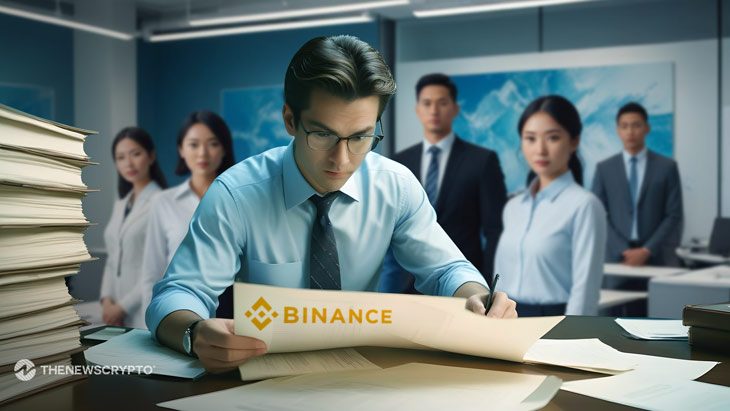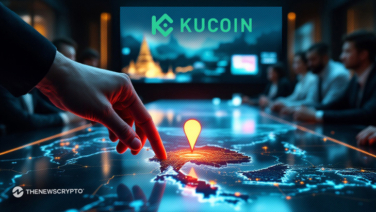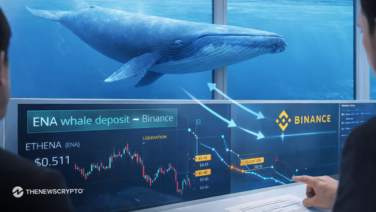- Decentralized AI represents a shift in how AI models are developed, stored, and accessed.
- By leveraging distributed networks, DeAI seeks to prevent monopolization, improve transparency, and create a more equitable AI-driven future.
Artificial Intelligence (AI) is rapidly becoming one of the most transformative technologies in modern history. However, much of today’s AI development remains in the hands of centralized entities—Big Tech companies that control vast amounts of computing power and data. The rise of blockchain technology and decentralized networks now offers an alternative: Decentralized AI (DeAI), which has been discussed and highlighted in a recent report ‘Fundamentals of Decentralized AI’ by Binance Research.
Decentralized AI represents a shift in how AI models are developed, stored, and accessed. By leveraging distributed networks, DeAI seeks to prevent monopolization, improve transparency, and create a more equitable AI-driven future. This article explores the foundations of DeAI, its core components, and its potential impact on society.
The Need for Decentralized AI
In recent years, AI has made enormous strides, with language models such as OpenAI’s GPT, Google’s Gemini, and Anthropic’s Claude dominating the market. These models rely on massive computational power and proprietary datasets, making them accessible only to a handful of well-funded corporations.
The risks associated with centralized AI include:
- Data Monopoly: Tech giants control the vast majority of training datasets, limiting innovation from smaller players.
- Bias and Ethical Concerns: Centralized models reflect the biases of their creators and lack transparency in decision-making.
- Security and Privacy Issues: User data is stored on centralized servers, making it vulnerable to breaches and unauthorized access.
- Lack of Accessibility: High computational costs prevent small businesses, independent developers, and researchers from contributing to AI advancements.
Decentralized AI aims to counteract these challenges by distributing AI training and inference processes across a network of independent participants.
What is Decentralized AI?
Decentralized AI (DeAI) is a system where AI models and their underlying components—data, compute power, and algorithms—are distributed across a decentralized network. Unlike traditional AI, where control is concentrated in the hands of a few corporations, DeAI allows multiple parties to collaborate, contribute, and benefit from AI development.
In a DeAI framework:
- AI models are trained across distributed nodes instead of centralized data centers.
- Compute power is shared across a network of participants who are incentivized to contribute their resources.
- Data is stored in decentralized storage solutions, ensuring security and accessibility.
- Algorithms are open-source and verifiable, reducing biases and increasing transparency.
Core Components of Decentralized AI
DeAI is built upon three essential pillars: data, compute power, and algorithms.
1. Data: The Fuel for AI
Data is the foundation of any AI model. In centralized AI, companies control vast amounts of user-generated data, creating monopolies. Decentralized AI changes this dynamic by utilizing decentralized storage solutions such as:
- Filecoin: A blockchain-based system that incentivizes users to store and retrieve data in a decentralized manner.
- Arweave: A permanent data storage protocol that ensures data availability without recurring costs.
These platforms ensure that AI data remains transparent, immutable, and accessible to all, rather than being owned by private corporations.
2. Compute: Powering AI in a Distributed Manner
Training AI models requires immense computational resources, traditionally provided by centralized cloud services such as AWS, Google Cloud, and Microsoft Azure. In a decentralized framework, computation is provided by:
- Render Network: A decentralized GPU network that allows users to rent idle compute power for AI model training.
- AIOZ Network: A blockchain-based system enabling decentralized AI computing through edge computing technology.
By leveraging decentralized compute networks, AI processing becomes more cost-effective and widely accessible.
3. Algorithms: The Brains of AI
AI algorithms dictate how models learn and make decisions. Currently, proprietary algorithms are locked within corporate labs, limiting transparency and independent verification. DeAI projects like Bittensor aim to decentralize AI model development by distributing machine learning tasks across a global network.
Bittensor’s Proof of Intelligence (PoI) model rewards contributors based on the quality and performance of their AI models, ensuring fair and open AI development.
Advantages of Decentralized AI
The shift toward decentralized AI offers numerous benefits:
- Transparency & Trust: Open-source AI models enable greater scrutiny, reducing biases and unethical practices.
- Reduced Censorship & Manipulation: No single entity can control or restrict access to AI models.
- Enhanced Security & Privacy: Decentralized storage and computation prevent data breaches and unauthorized access.
- Cost Efficiency: Users can access AI models at a fraction of the cost, democratizing AI development.
- Interoperability: DeAI networks can integrate multiple AI models, optimizing performance and efficiency.
Challenges & Limitations
Despite its potential, Decentralized AI faces several challenges:
- Scalability: Training AI models on decentralized networks is computationally intensive and requires efficient coordination.
- Incentive Mechanisms: Designing a fair reward system for contributors remains complex.
- Quality Control: Ensuring high-quality AI outputs across a distributed network is challenging.
- Regulatory & Ethical Issues: Governments may impose restrictions on decentralized AI networks, creating legal uncertainties.
The Future of Decentralized AI
As AI technology continues to evolve, decentralization will play a crucial role in ensuring fairness, security, and accessibility. The fusion of blockchain technology with AI offers a unique opportunity to create a more democratized AI ecosystem. Key trends shaping the future of DeAI include:
- Integration with Web3: DeAI will become a fundamental layer of the decentralized web, enabling trustless AI-powered applications.
- Decentralized Autonomous AI Agents: AI models operating independently on blockchain networks, making autonomous decisions without central control.
- Collaborative AI Training: Crowdsourced AI models trained across global networks, leading to improved accuracy and diversity.
- Cross-chain AI Solutions: AI models leveraging multiple blockchain ecosystems for enhanced functionality and interoperability.
Conclusion:
Decentralized AI represents a paradigm shift in AI development, offering a more transparent, secure, and equitable alternative to centralized AI. By leveraging decentralized data storage, distributed compute power, and open-source algorithms, DeAI has the potential to democratize AI and make it accessible to a global audience.
While challenges remain, ongoing advancements in blockchain technology and decentralized computing will continue to drive the growth of Decentralized AI. As AI becomes increasingly embedded in our daily lives, ensuring that it remains open, transparent, and fair will be one of the most critical challenges of the 21st century.
In the future, decentralized AI could redefine how intelligence is created, distributed, and utilized—ushering in an era of truly democratized artificial intelligence.








